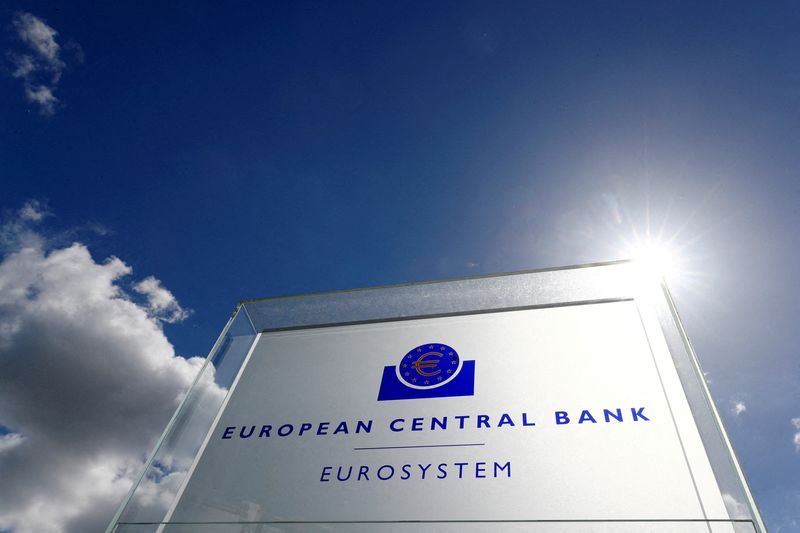FRANKFURT (Reuters) - Euro zone firms' demand for loans dropped to the lowest on record last quarter and a further decline is likely over the summer as lenders continue to tighten access to credit, the European Central Bank said on Tuesday based on a survey of big banks.
A key input in policy deliberations, the survey is further proof that the bloc's economy is struggling to cope with rapid rate hikes and will strengthen arguments for the ECB to hold fire after what is set to be its ninth straight increase on Thursday.
"Firms' net demand for loans fell strongly in the second quarter of 2023, dropping to an all-time low since the start of the survey in 2003," the ECB said in a quarterly survey of 158 banks.
During the current quarter banks expect a further drop in loan demand albeit of a "much smaller" scale than in the second quarter, the ECB added.
The decline came as banks saw their access to funding deteriorate but still increased their own margins.
While the percentage of banks reporting tighter credit standards was smaller than in the previous quarter, it remained above the survey's historical average and came on top of already substantial tightening, the central bank said.
Banks expect to continue tightening credit standards this quarter.
The ECB has already raised rates by a combined 4 percentage points in the past year, all in the hope this would restrict demand just enough to contain inflation without pushing the bloc into recession.
That effort is now bearing fruit as inflation is coming down quickly, despite an exceptionally tight labour market.
But economic growth was negative around the turn of the year and there is no still recovery in sight as many of the ECB's rate hikes have yet to work their way through the economy.
Demand for mortgages also dropped sharply, though not as much as the "very large" decrease in the previous two quarters, but a further moderate drop is likely during the third quarter, the ECB added.

Banks said that their stock of non-performing loans (NPL) also pushed them to tighten credit standards.
While NPL ratios have not changed substantially, banks' perception of refinancing and repayment risk increased, the ECB added.